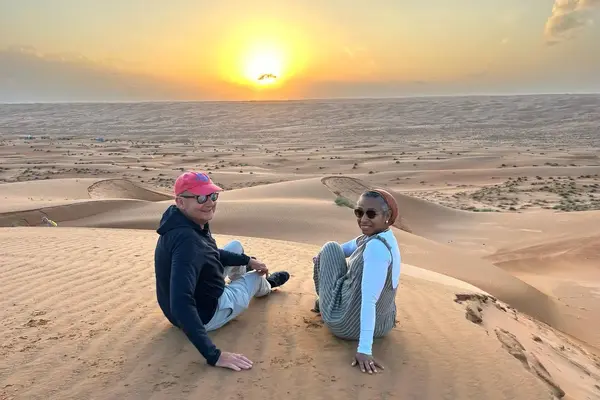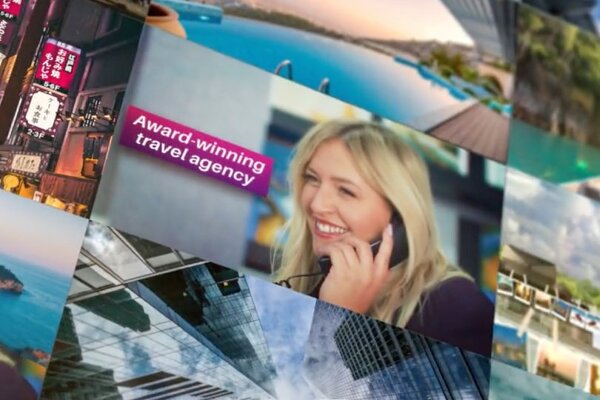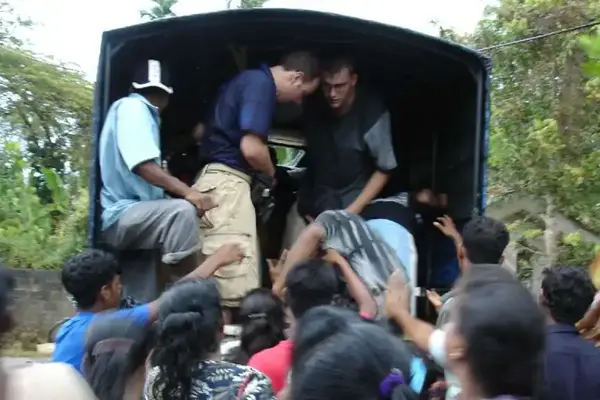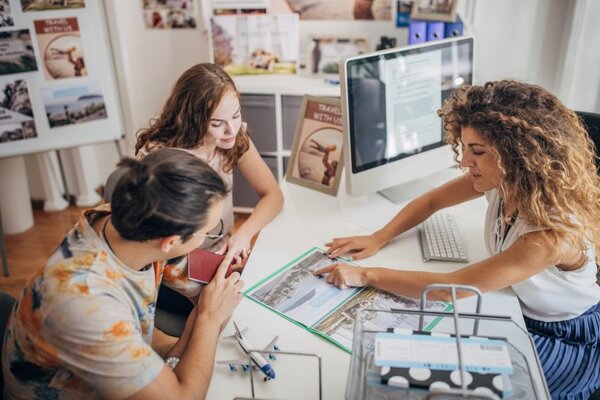'We've got guts – we're not afraid to do adventure travel differently'
 Katherine Masters
Katherine MastersNo longer a ‘tiny operator travelling to weird countries’, YellowWood Adventures is courting the trade with more diversified product. Founder Sam McManus shares the story of his travel company, built from the heart
With the benefit of hindsight, Sam McManus acknowledges that starting his own tour operation was “maybe unwise”, given he had no experience of working in travel. In spite of that gap in his CV, the same week he left an unfulfilling city job, he decided to found an adventure tour operator.
He describes the experience of working for an oil and gas consultancy, as a “slow, but unrelenting degradation of his soul” and he knew he needed to make a fundamental change.
In 2016, he bought eight tents and started running “niche” trekking trips in Ethiopia. Kyrgyzstan followed, then Iran.
“I used YellowWood to explore the world and live my dreams, like horse riding in Mongolia and drinking wine in vineyards in Lebanon.”
“I’ve been learning from day one," he admits. "YellowWood Adventures was built unstrategically and from the heart, and so it took a while for the company to find its niche. But we’ve got guts. We’re not afraid to do things differently.”
Lessons learnt
McManus learnt that trekking tends to attract younger clients, with less budget to spend, and that running smaller margin trips needs a larger footfall in order to be a profitable business model.
“I was also using Western tour guides at the beginning, which are more expensive,” he adds. “I learnt everything the hard way.”
Things started looking up when YellowWood gained traction with slightly older clientele, in their forties, fifties and sixties.
The focus was still on trekking, McManus explains, but the accommodation went up a notch. “I realised for this clientele, it’s less about the price competitiveness, it’s more about the experience. It meant I could afford to spend money on marketing to find more of these people.”
After safely extricating a tour group from Ethiopia as the world shut down in March 2020, on a personal level McManus made the best of the pandemic, spending five months in Costa Rica and nine months in northern Spain.
He used the time to write a book, Wax and Gold, telling stories from his research trips, and to crowdfund a new website. He also prepared to launch a number of new destinations, given some of his cornerstones were becoming off limits. Iran was no longer an option for tours, after international relations were destabilised by the first Trump presidency. And Ethiopia had become more limited in scope, with the north out of bounds.
Away from the tourist trail
Introducing the likes of Bhutan, Uganda, Northern Spain and Ladakh in Northern India gave YellowWood more stability and more diversification.
“Working with countries that can switch from green to red on a no-go list can be very difficult for an SME. We’re still a little bit edgy when it comes to our destinations but client safety is paramount.”
He adds: “Somewhere like Iceland, we’ll go off the beaten track and head away from the tourist hotspots and seek out more original destinations. The Canary Islands has a bad reputation in certain bottlenecks, but for two months earlier this year, I was living and working there remotely. It’s like black and white on and off the tourist trail.”
YellowWood has attracted a loyal following though email marketing and newsletters, built through competitions with magazines such as Wanderlust, and the company gets a “huge” amount of repeat business, says McManus.
“The world has opened up with the rise of Instagram. People want these experiential travels, and they can see where their friends and associates are travelling. Lots of barriers and stigmas have been broken down about misunderstood destinations.”
Taking the time to make itineraries “really special” has also helped with word of mouth recommendations.
“Oman is a good example,” explains McManus. “It took us a while to get our itinerary right. When we started, our clients didn’t like the hotels, but then we went too high-end. One client told me, that while it was a really nice trip, it didn’t feel like YellowWood. So we added a stay in the desert, wild camping under the stars, in the company of Bedouin guides. We want that edge, that genuine experience, that authenticity.”
Despite this propensity for edginess, more often than not it’s the weather that causes disruption rather than human or political issues.
There was the time that two of groups had to be evacuated from the desert in Oman, where it hadn’t rained in 20 years, and heavy rain had brought the risk of flash flooding.
Safety first
Another time in Kyrgyzstan, a horse ride along a beautiful mountain near the Chinese border was brought to an abrupt end by torrential rain: “The path had crumbled away, and the group were inexperienced horse riders, I could tell they were nervous. I’ve learnt that when those internal alarm bells go off, you should always follow that instinct. That’s why I always back our guides to the hilt. Safety has to come first.”
Using local guides has helped offer more security too. “In Ethiopia, ironically, we had a Western guide who got pickpocketed but when we switched to local guides, we found they were able to get the beggars to leave in an effective and safe manner.”
Now that YellowWood’s product is more accessible, business plans for 2025 include working with more agents, with a 10% commission offer on the table. McManus reveals he experienced a lot of push back when reaching out to agents in the early days, because the company was too small and too inexperienced: “We’ve been around now for seven years, and we’re a very different business from when we started out, as a tiny operator, travelling to weird countries. We’re more mature as a company, we have more staff, and we have more product for agents to talk to their clients about.”
YellowWood takes its name from a Robert Frost poem, The Road Not Taken. The final two lines are: “I took the one less travelled by / And that has made all the difference.”
“That’s the DNA of our business,” concludes McManus. “It’s what gives our itineraries a genuine authenticity, and I’d love to work with those agents whose clients want the road less travelled.”
Sign up for weekday travel news and analysis straight to your inbox

Katherine Masters
Supplier Directory
Find contacts for 260+ travel suppliers. Type name, company or destination.















